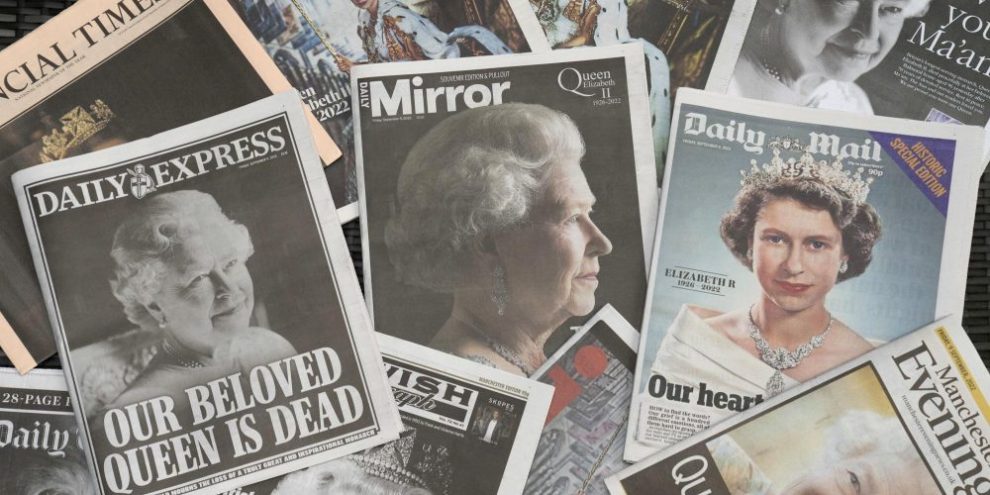
Danica Kirka, Jill Lawless, Sylvia Hui - The Associated Press
Britain’s new king prepared to meet with the prime minister Friday and address a nation mourning Queen Elizabeth II, the only British monarch most of the world had known and a force of stability in a volatile age.
The country began a 10-day mourning period Friday, with bells tolling around Britain and 96-gun salutes planned in London – one for each year of the queen’s long life. People around the globe gathered at British embassies to pay homage to the queen, who died Thursday in Balmoral Castle in Scotland.
King Charles III, who spent much of his 73 years preparing for the role
On his first full day of duties Friday, he is expected to return to London, meet Prime Minister Liz Truss, appointed just days earlier, and deliver a speech to the nation at a time when many Britons are preoccupied with an energy crisis, the soaring cost of living, the war in Ukraine and the fallout from Brexit.
Elizabeth was Britain’s longest-reigning monarch and a symbol of constancy in a turbulent era that saw the decline of the British empire and disarray in her own family. Members of the royal family had rushed to her side at the family’s summer residence in Balmoral after her health took a turn for the worse.
The lengthy mourning period begins Friday with a public remembrance service at St. Paul’s Cathedral in London, with Truss and senior ministers expected to attend. Charles, who became the monarch immediately upon his mother’s death, will then be formally proclaimed king at a special ceremony Saturday.
After a vigil in Edinburgh, the queen’s coffin will be brought to London, and she will lie in state for several days before her funeral in Westminster Abbey.
As the second Elizabethan Age came to a close Thursday, the BBC played the national anthem, “God Save the Queen,” over a portrait of the monarch in full regalia as her death was announced. The flag over Buckingham Palace was lowered to half-staff. And in the one of first of many shifts to come, the anthem played Friday was “God Save the King.”
The impact of Elizabeth’s loss will be huge and unpredictable for Britain. She helped stabilize and modernize the monarchy across decades of enormous social change, but its relevance in the 21st century has often been called into question.
The public’s abiding affection for the queen had helped sustain support for the monarchy during the family scandals, but Charles is nowhere near as popular.
Charles called his mother’s death “a moment of the greatest sadness for me and all members of my family,” adding: “I know her loss will be deeply felt throughout the country, the Realms and the Commonwealth, and by countless people around the world.”
The changing of the guard comes at a fraught moment for Britain — and just after a brand-new prime minister took the reigns.
Truss, appointed by the queen just 48 hours earlier, called Elizabeth “the rock on which modern Britain was built.”
British subjects outside Buckingham Palace wept when officials carried a notice confirming the queen’s death to the wrought-iron gates of the queen’s London home. Hundreds gathered in the rain, and mourners laid heaps of colourful bouquets at the gates.
“As a young person, this is a really huge moment,” said Romy McCarthy, 20. “It marks the end of an era, particularly as a woman. We had a woman who was in power as someone to look up to.”
World leaders extended condolences and paid tribute to the queen.
In Canada, where the British monarch is the country’s head of state, Prime Minister Justin Trudeau’s eyes were red with emotion as he saluted her “wisdom, compassion and warmth.” In India, once the “jewel in the crown” of the British empire, Prime Minister Narendra Modi tweeted: “She personified dignity and decency in public life. Pained by her demise.”
U.S. President Joe Biden called her a “stateswoman of unmatched dignity and constancy who deepened the bedrock alliance between the United Kingdom and the United States.”
Since Feb. 6, 1952, Elizabeth had reigned over a Britain that rebuilt from a destructive and financially exhausting war and lost its empire; joined the European Union and then left it; and made the painful transition into the 21st century.
She endured through 15 prime ministers, from Winston Churchill to Truss, becoming an institution and an icon — a reassuring presence even for those who ignored or loathed the monarchy.
She became less visible in her final years as age and frailty curtailed many public appearances. But she remained at the centre of national life as Britain celebrated her Platinum Jubilee with days of parties and pageants in June.
On Tuesday, she presided at a ceremony at Balmoral Castle to accept the resignation of Boris Johnson as prime minister and appoint Truss as his successor.
banner image: The Associated Press





